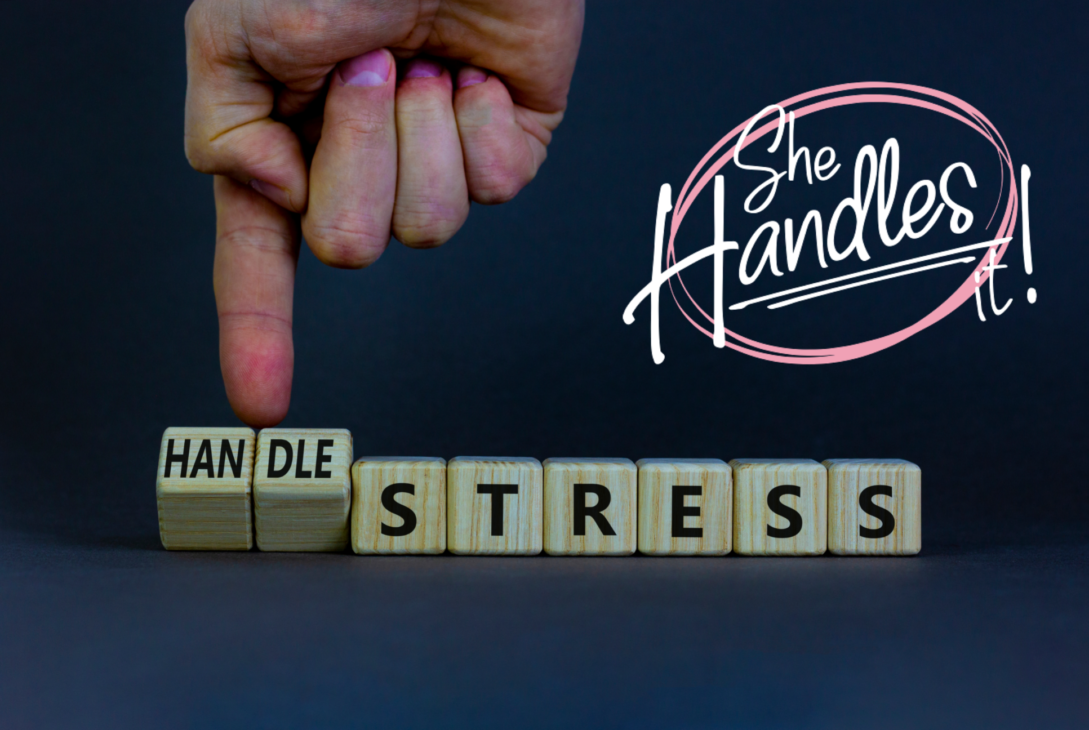Everyone wants to achieve a sense of balance in their lives. But the truth is, there’s no “one size fits all” solution—each person needs to make it unique for them.
The real challenge then becomes deciding how best to manage work and personal life so that stress takes a backseat. It might sound like an arduous task… but isn’t this why we venture out into the world? To create something entirely our own?!
Many people experience stress and anxiety at work. This stress can harm our mental health and well-being, as well as our personal relationships and home life.
However, it’s possible to manage work stress and avoid bringing it home with you. Here are a few of my personal tips for leaving the stress behind.
Practice Mindfulness
“Mindfulness” refers to the mental state achieved by fully focusing on the here and now. When you are at work, it is easy to get caught up in your tasks and the stress that comes with them on top of thinking about your personal responsibilities such as household duties or childcare.
Navigating the hustle and bustle of modern life can be challenging, but mindfulness is a useful tool to help us stay focused on what’s happening in the moment despite whatever pressures come our way.
By practicing this technique regularly, we’re able cultivate composure and concentration even when work or family obligations are testing our limits.
Create Boundaries
To protect your home from being overrun with work-related stress, it’s important to establish a clear divide between the two. Establish specific periods of time for checking email so that you can be present and in control when focusing on tasks related to your job.
In the modern world, it can be hard to ever truly “leave” work. However, proactively planning your time allows you to regain control and find balance in your daily life.
For example, I personally will always check my emails before I cook dinner and then I check them again before I go to bed to ensure that my team and my clients are taken care of. By doing that, I can cook dinner and spend time with my children without feeling worried that something important is being missed.
Stay Active
Regular exercise can be a great way to relieve stress and anxiety. Physical activity after work can help clear your mind and shift your focus away from work.
Whether it’s going for a walk, hitting the gym, or playing a sport, physical activity can be a powerful tool in managing work stress. Investing in yourself pays dividends—with just a bit of care and dedication, you can boost your physical fitness AND mental resilience.
Connect with Loved Ones
Spending time with loved ones is one of the best ways to relieve stress and recharge your batteries. Whether it’s dinner with family, a movie night with friends, or a date with your significant other, taking the time to connect with the people you care about can help you forget about work and focus on the things that matter most.
Instead of pouring your professional frustrations out to friends and family, use them as an opportunity for a much-needed break from the stresses of work. Enjoy their company while taking time away from career worries; you’ll come back with a fresh perspective!
Get Enough Sleep
Sleep is a critical component of the daily routine for lasting physical and mental wellbeing. Make sure to get at least 7-9 hours each night, as compromising on rest can lead to heightened stress and difficulty handling unexpected surprises in life.
Sleep deprivation is like fueling your engine with insufficient fuel; it limits our capacity to meet the challenges that come up during ordinary days – making every situation feel much more overwhelming than it needs to be!
Learn to Delegate
Many people feel overwhelmed at work because they try to do everything themselves, especially people in positions of management or leadership. Delegating tasks to others can help reduce your workload and relieve some of the stress that comes with it.
By delegating tasks to your coworkers or subordinates, you can focus on the most important tasks and avoid getting bogged down in unnecessary details.
Not to mention, appropriate delegation will help you accomplish much more throughout the course of the day which will make you feel pretty damn good when you leave the office.
Set Realistic Expectations
Aim for the stars, but keep your feet firmly planted on the ground. Guard yourself from unnecessary stress and unhappiness by setting realistic goals that can be reached with effort. Identify what is most important to you in life, then strive towards it without getting lost among false dreams and unachievable expectations!
Also, you have to be honest with yourself—you have to know that some days will be harder than others. You cannot expect to be stress free. However, you can help yourself handle the stress better which can eventually make stress not feel like stress.
Take Breaks
Taking regular breaks can help reduce stress and increase productivity. Whether it’s a short walk, a coffee break, or a quick meditation, taking breaks can help you recharge your batteries and return to work with renewed energy and focus.
Practice Self-Care
By engaging in self-care, you can give yourself the break from stress that your body and mind need. Take a soothing bath to relax after a hectic day; pick up an interesting book for some quality “me” time; or do something fun just because it makes you feel great!
Taking care of yourself is one simple way to promote your well-being and create harmony between home life and work.Find something that lets you “decompress” so that you can transition from work mode to home mode.
One of my favorite ways of decompressing and shifting my mindset is by listening to an audible book on the way home. Whether I am reading an industry related, self-help or a fiction book, it allows my brain to focus on something other than the work day and then when I arrive home, I am prepared to handle my “home day”.
Seek Help
If you’re feeling completely out of control and unable to combat stress, it may be time to reach out for professional help. By consulting with a therapist or counselor, you can discover deeper issues behind your feelings of being overwhelmed and create an effective strategy that works specifically for you.
It’s not uncommon for employees to conceal their stress, leading to poor performance. Taking the initiative and directly communicating with your employer can allow you both to work together in coming up with a strategy on how best alleviate workplace strain – potentially providing much needed relief.
It’s not a secret that work stress can be a major source of anxiety and frustration, but it is possible to manage it and avoid bringing it home with you. Not every job can be a 9 to 5 job, so you have to find your own ways of creating a balance that allows you to be successful in your career and happy in your personal life.
Don’t Let Work Stress Take Over Your Life
Here are some tips that might help:
- Make sure to take regular breaks throughout the day, even if it’s just for a few minutes. This will help clear your mind and allow you to come back to work with a fresh perspective.
- Find an activity outside of work that brings you joy and serves as an escape from work-related stress. Whether it’s yoga, painting, or going for a walk in the park, having something that takes your mind off of work can be incredibly helpful.
- Start each day with intention and focus on what is most important. Prioritize tasks so that those that need your attention the most get done first, while leaving lower priority tasks until later in the day.
- Set realistic expectations for yourself when it comes to workload and deadlines. When feeling overwhelmed, remember that every task doesn’t need to be perfect right away – just do your best and move on when necessary.
Don’t forget to celebrate the small wins throughout the day – they all add up!
Last modified: February 13, 2023










